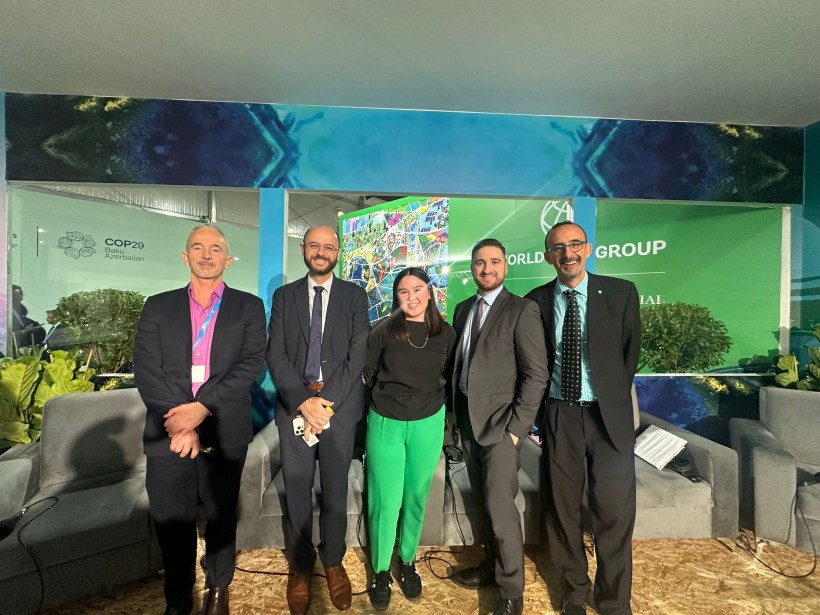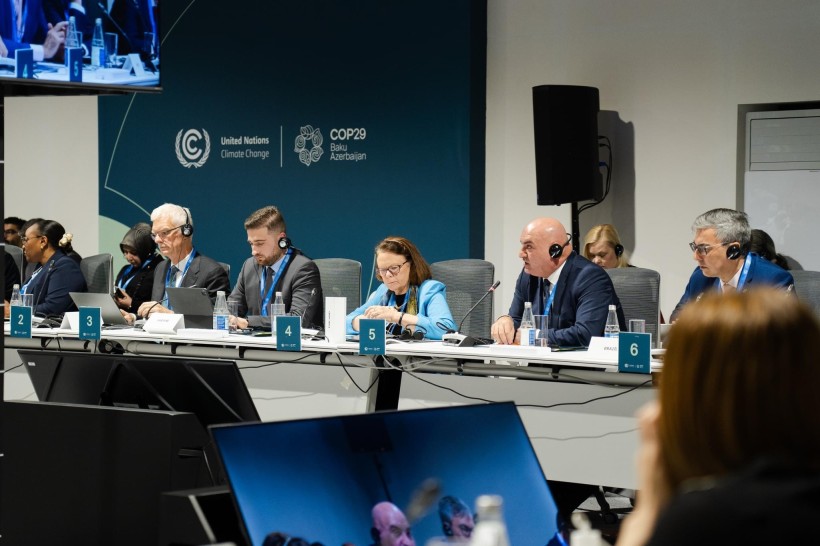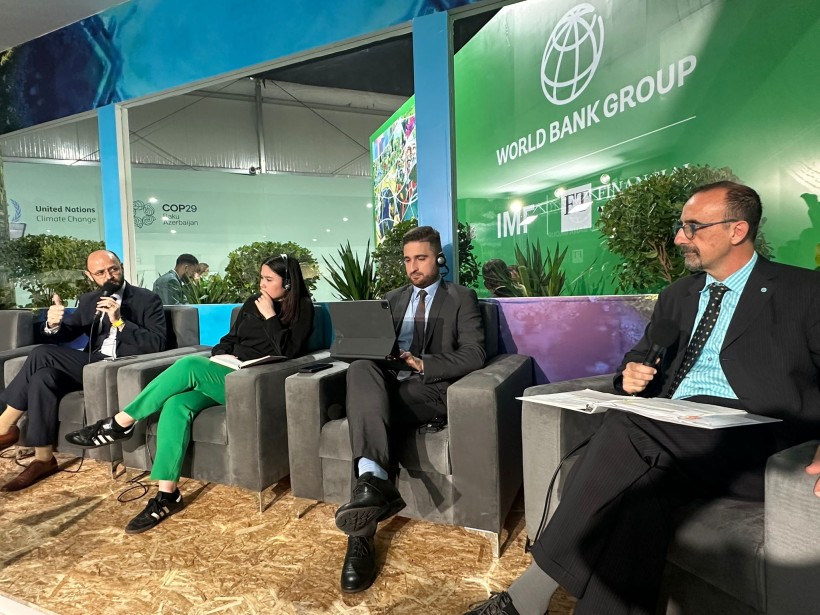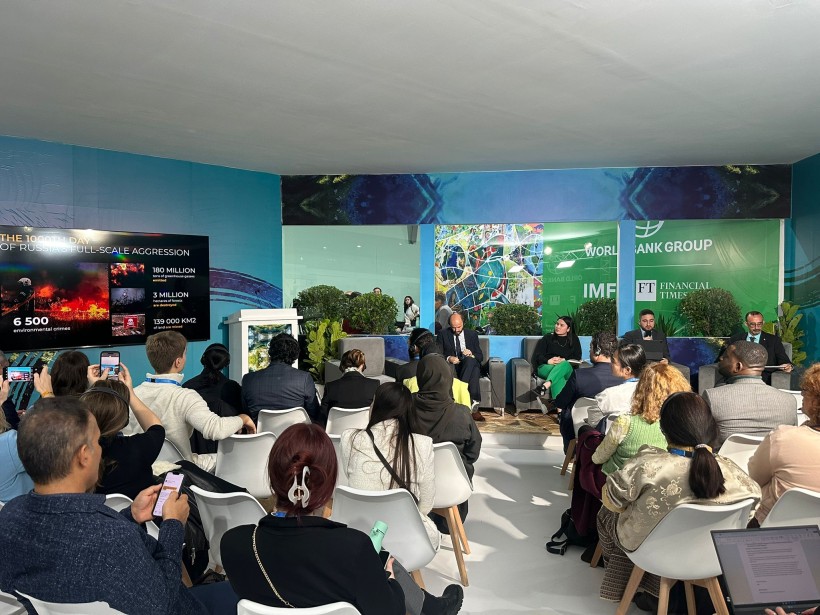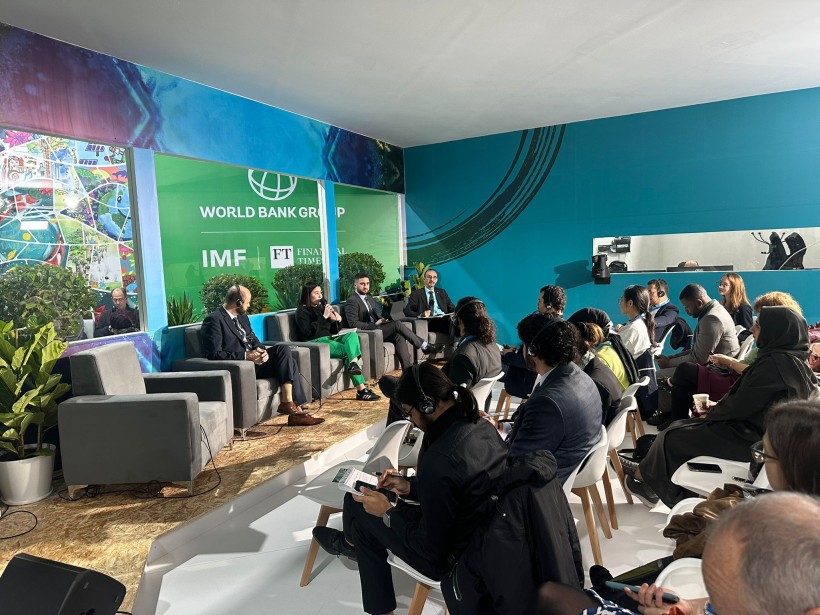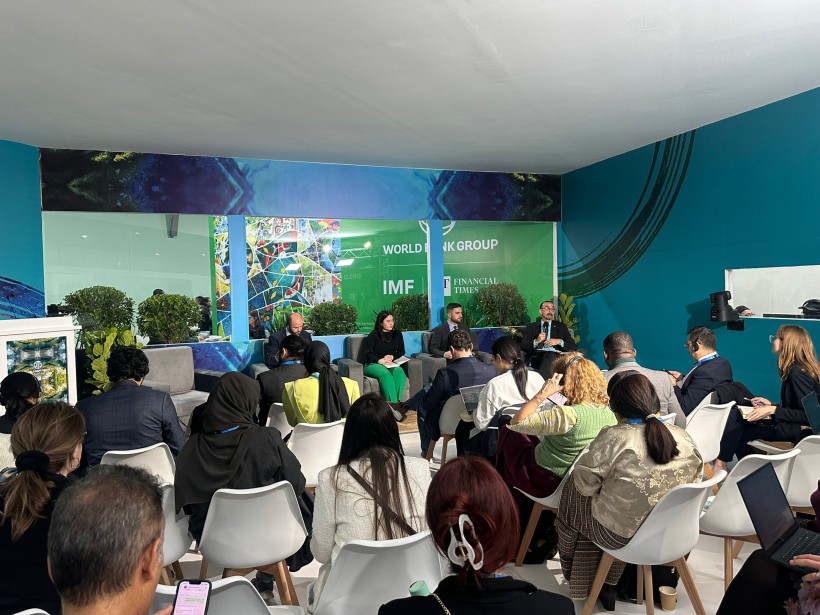Ukrainian education at COP29: sharing experience and calling for collaboration in reconstruction with environmental principles
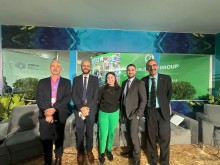
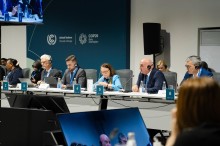
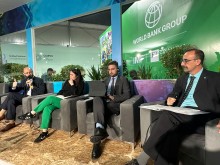

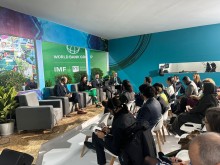
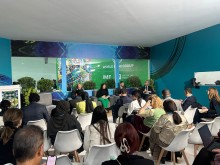
The 29th United Nations Climate Change Conference (COP29) is currently underway, bringing together over 190 countries around issues of ecology and sustainable development. A special focus at the event has been placed on the role of education in shaping an environmentally conscious society and reducing environmental footprint.
Ukrainian education was represented at COP29 by Yevhen Kudriavets, the First Deputy Minister of Education and Science of Ukraine. He participated in a panel discussion on education for climate action and a ministerial meeting on human development and greening education.
"The environmental problems caused by the war waged by russia are not localized only in Ukraine. More than 6,500 environmental crimes are a threat to the entire world. Despite all the destruction, with the support of our partners, we can build back greener. In education, there are already examples of such cooperation — in particular, through the LEARN program supported by the World Bank, we are integrating environmental principles both into infrastructure projects and educational programs. At COP29, we call for further collaboration, as overcoming the consequences of the war can also contribute to solving global environmental challenges caused by russia," said Yevhen Kudriavets.
Ukraine is among the countries that recognize the importance of education in the process of global ecological transformation.
Here are the initiatives being implemented by the Ministry of Education and Science to improve education and stimulate green transformation in Ukraine:
- Education content: Environmental competence is one of the 10 key competencies for life in the New Ukrainian School (NUS). Knowledge of ecology and sustainable development is integrated not only into natural sciences but also across other subjects such as literature, mathematics, arts, and technology. To improve the quality of teaching environmental education, a "green" program for teacher training is being implemented as part of the LEARN program, supported by the World Bank.
- Infrastructure solutions: the LEARN program, supported by the World Bank, will address climate change issues by mitigating its effects through the construction of shelters, procurement of school buses, and the introduction of a "green" agenda in the NUS teacher training program. This week, the World Bank will make the first contribution to the state budget, ensuring NUS receives stable support for the next 3 years.
- Energy efficiency initiatives: MoES is implementing the "Energy Efficiency Lessons" project, which integrates energy efficiency topics into educational programs for grades 4 through 11. A digital platform is also being developed to raise students' awareness about energy conservation. This project is being implemented within the LEARN program and serves as an example of adapting our educational policies to the challenges of war.
- "Green" solutions in the reconstruction of educational infrastructure: one example is the "Architectural Transformation of Schools" project, which offers five architectural solutions for rebuilding educational institutions, taking into account ecological criteria and multifunctionality.
We continue to call on international communities to support Ukraine in rebuilding with green standards. By doing so, we can address the consequences of war, reduce environmental footprint, and tackle global ecological challenges caused by russia.
